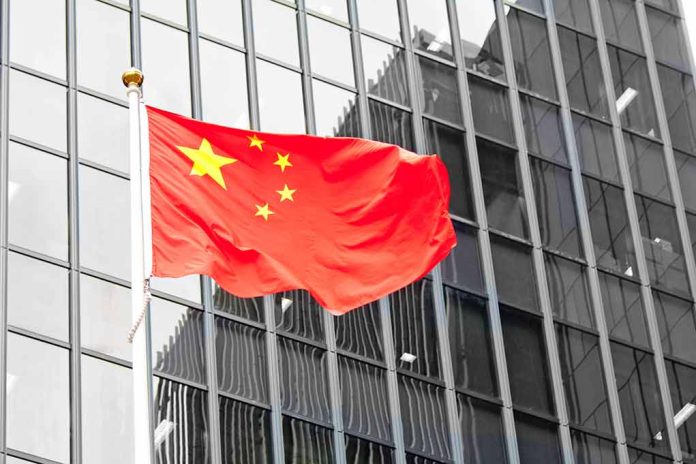
China’s advocacy for a peaceful political resolution in Syria demonstrates its growing influence in the Middle East, with implications for regional stability.
At a Glance
- China calls for a “political solution” in Syria to restore stability.
- Syrian rebels control Damascus, ending Assad’s dynasty.
- China emphasizes that Syrians should decide their future.
- Beijing and Assad declared a “strategic partnership” in 2023.
China’s Role in Syria
China’s foreign ministry has called for a political solution in Syria. This stance comes after recent upheavals in Syria, where rebels now control Damascus, ending Bashar al-Assad’s rule. The Chinese government has positioned itself as a peace advocate, promoting stability and expressing the need for a Syrian-led future.
Beijing’s diplomatic efforts are in line with its strategic interests in the region. The emphasis has been on the Syrian people deciding their destiny, suggesting a preference for an internally driven resolution over external interventions. The Chinese embassy in Damascus has advised its citizens to evacuate due to the volatile situation.
China calls for ‘political solution’ to restore stability in Syria https://t.co/Qy8N7Gu5LY
— ST Foreign Desk (@STForeignDesk) December 9, 2024
Regional Implications
Syria’s regime change was orchestrated by Hayat al-Tahrir al-Sham (HTS), classified as a terrorist organization by multiple countries. The takeover marks the end of a 50-year Assad dynasty, with President Assad reportedly seeking asylum in Russia. The developments signify a shift in power dynamics with regional and global ramifications.
“The future and destiny of Syria should be decided by the Syrian people, and we hope that all the relevant parties will find a political solution to restore stability and order as soon as possible,” said Mao Ning, a spokeswoman at the Chinese Foreign Ministry.
China’s interest in Syrian stability is also seen in strengthened bilateral relations, marked by Assad’s 2023 visit to China and the announcement of a “strategic partnership” with President Xi Jinping. This relationship underscores China’s commitment to fostering a stable Middle East environment.
China’s Diplomatic Push
Mao Ning, the Chinese Foreign Ministry spokeswoman, emphasized hands-off decision-making for Syrians while she did not confirm direct communications with Assad post-rebels’ control. This neutral stance illustrates China’s strategic navigation in complex geopolitical landscapes, balancing influence with localized sovereignty.
“We hope all relevant parties will proceed on the basis of the Syrian people’s fundamental interests and find a political resolution as soon as possible to restore stability in the country,” Ning said.
China’s call to ensure the safety of its personnel and institutions in Syria indicates tactical concern for its citizens amid evolving uncertainties. This careful diplomatic maneuvering echoes its larger goal of fostering safe environments that support its global strategies.





